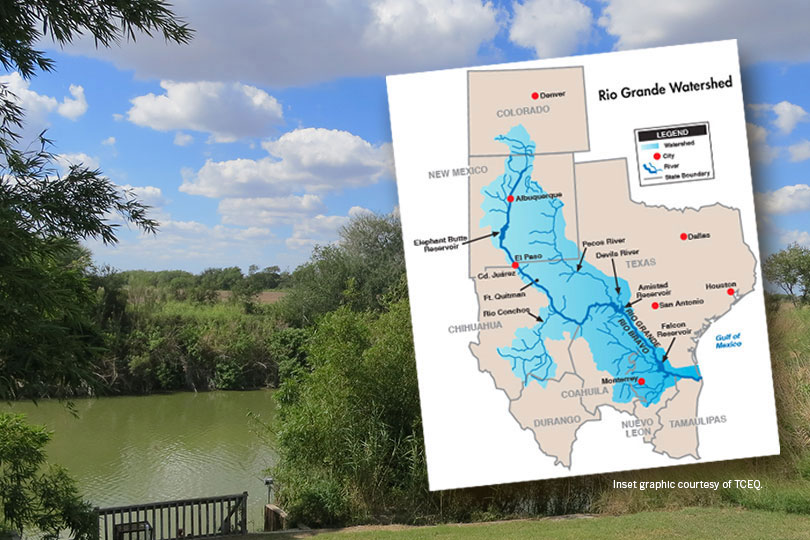By Jessica Domel
Multimedia Reporter
The saying “water is for fighting” is certainly true this year. Earlier this month, the Supreme Court of the United States (SCOTUS) heard oral arguments in a case that pits state against state over use of water.
Texas filed suit against New Mexico and Colorado in January 2013, alleging New Mexico was allowing its residents to pump water that was intended for Texas under the 1939 Rio Grande Compact.
“What the Rio Grande Compact requires is that New Mexico deliver a certain amount of water to Texas. The way the compact is written, the delivery point is at Elephant Butte, not at the state line,” Tiffany Dowell Lashmet, an agricultural law specialist for Texas A&M AgriLife Extension, said in an interview with the Texas Farm Bureau Radio Network. “Well, Elephant Butte is about 100 miles north of the state line. New Mexico delivers water there and then it flows down the river to Texas. The allegations that Texas is making is that New Mexico is delivering the water required to Elephant Butte, but then the state of New Mexico has issued permits for people along the river to drill ground water wells.”
The compact between Texas, New Mexico and Colorado doesn’t deal with groundwater, which is considered a state issue. The compact only addresses the Rio Grande.
“Texas says, ‘You’re letting them drill all these groundwater wells, which are sucking water out of the river, and by the time it gets to Texas, we’re not getting the water we’re entitled to.’ New Mexico’s response is, ‘All the compact says is we have to deliver it to Elephant Butte. We’ve done that. How we permit groundwater wells is a state issue that has nothing to do with the compact,’” Dowell Lashmet said.
Texas has no allegations against Colorado, but because the state is party to the compact, it was pulled into the case.
The case was filed with the Supreme Court because it is a lawsuit between the states.
“That is one of the types of lawsuits that the Supreme Court has what we call original jurisdiction for—meaning you don’t have to file that at a lower court. It can be filed initially at the U.S. Supreme Court,” Dowell Lashmet said.
On Jan. 8, court justices heard oral arguments in the case.
“I think that there was some misinformation about this out there. Everybody was excited because there was oral argument and the case is going to be decided. We’re still in the preliminary rounds of this,” Dowell Lashmet said.
During the hearing, lawyers representing the United States and Texas explained why they would like the U.S. to be able to join the suit.
“In addition to the Rio Grande compact, there is a treaty between the U.S. and Mexico that involves the delivery of a certain amount of Rio Grande water to Mexico. The federal government maintains the Elephant Butte Reservoir where New Mexico delivers its water to Texas,” Dowell Lashmet said. “The U.S. says it has some interest in this and should be allowed to be a party. Texas pretty much agrees with the U.S. on that.”
Lawyers representing New Mexico and Colorado argued against the inclusion because the compact only included the three states.
“What happens when a case gets filed at the Supreme Court, it usually gets sent to a special master to sort of handle some of these preliminary matters. The special master issued a recommendation to the court saying he thinks that we should let the U.S. intervene as a party, but limit the claims they can make to only those involving the Federal Reclamation Act and not claims related to the compact,” Dowell Lashmet said.
If the court decides to let the U.S. intervene in the suit as a party, they’ll have a seat at the table and be able to argue for their interests. If not allowed to join, the U.S. could file an amicus brief in the case to have input.
“They say they’ve got to protect their rights under the Reclamation Act and under the treaty with Mexico. So that’s really all the Supreme Court’s going to decide at this juncture is whether or not th

